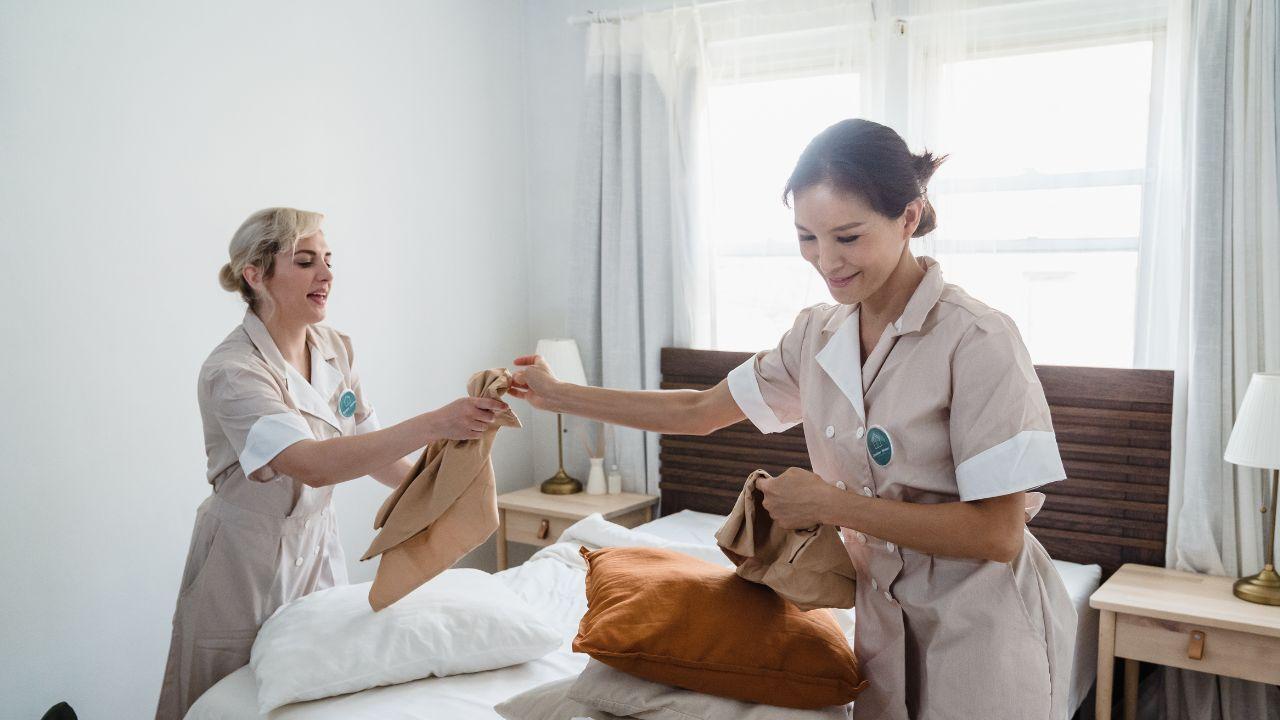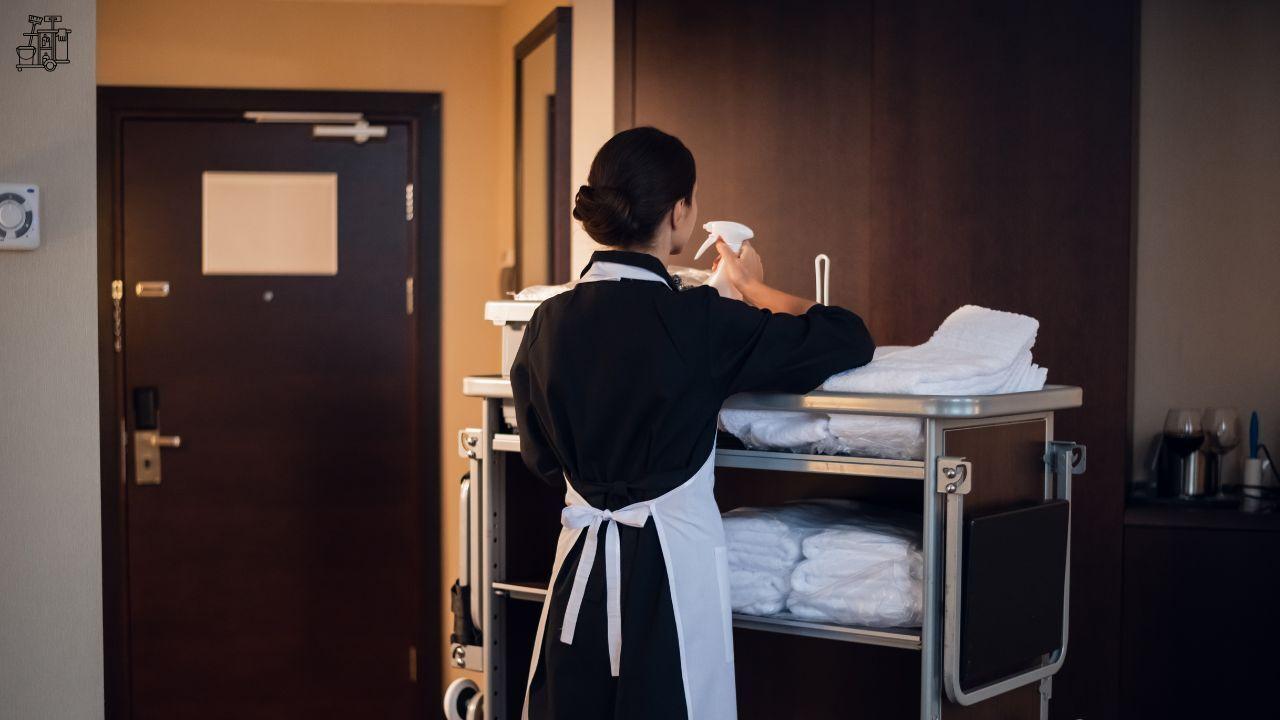Hiring a maid has always been a big decision for many Singapore families. In 2025, this became even more true. More households relied on domestic helpers for childcare, elder care, housekeeping, and support in busy daily routines. But what did Singaporeans really go through last year? What went well, what was tough, and what changed?
This review breaks everything down using real data from trusted sources like the Ministry of Manpower (MOM), SingStat, and the Ministry of Social and Family Development (MSF). It also includes real-world stories, common situations, and lessons many families learned along the way.
1. A Quick Look at the Numbers in 2025
The first thing to understand is how important maids are in Singapore today. According to MOM’s 2025 Foreign Workforce Numbers Report, Singapore had over 270,000 Foreign Domestic Workers (FDWs) working across homes. The number stayed steady throughout the year, as families continued to need help with daily responsibilities.

SingStat’s “Household Employment Trends” also showed that about 1 in 5 households now employs a helper. The percentage was higher in homes with young children or elderly members needing support. This matches Singapore’s aging population trend, where elder care needs rose steadily in the last decade.
It’s clear that the role of domestic helpers is now a normal part of life for many families. But numbers alone don’t tell the full story. The experiences of 2025 revealed much more.
2. What Singaporeans Found Helpful in 2025
Better Skills and Training
One of the most positive parts of 2025 was the improved skill level of helpers arriving in Singapore. According to the MOM Employer Satisfaction Study (2025), many employers said they were pleased with their helpers’ overall work quality. A large number of helpers came equipped with essential training in areas such as:
-
Elder care: supporting seniors with daily routines and mobility
-
Childcare: caring for young children safely and responsibly
-
Basic cooking: preparing simple, everyday meals
-
Housekeeping: keeping homes clean, organised, and well-maintained
-
Safety and hygiene skills: following proper hygiene and safety practices
Employers also shared that helpers who had previously worked in Singapore were able to adapt much faster. Transfer maids became especially popular because they already understood local routines, food preferences, and household expectations.
More Trust and Communication
A surprising finding from MOM’s survey was that trust between employers and helpers improved in 2025. Many families realised that clear communication worked far better than strict or unclear rules. Employers shared that simple habits made a big difference, such as:
-
Writing down weekly tasks
-
Using WhatsApp for reminders or quick updates
-
Creating shared cleaning or routine schedules
-
Talking openly about expectations from the start
Even small changes like these helped build smoother, more respectful relationships at home.
Platforms Made Hiring Easier
In 2025, more families turned to online platforms to search, compare, and shortlist helpers before speaking with an agency. One of the most used options was browsing maids in Singapore, where families could filter helpers by skills, nationality, experience, salary range, and availability.
This saved time and reduced stress because employers no longer had to visit many agencies in person.
3. What Singaporeans Struggled With in 2025
Even though many experiences were positive, families also faced some common challenges.
Rising Costs
According to MOM’s 2025 Levy and Fee Overview, the overall cost of hiring a helper increased slightly last year. Employers had to manage several expenses such as agency fees, medical checks, insurance, the monthly levy, and daily living costs.
Many families shared that the upfront cost was the biggest concern, especially for first-time employers who had to settle most of these payments before the helper even began working.
Matching the Right Helper
SingStat’s household report showed that mismatches were one of the main reasons for early contract changes in 2025. Employers often struggled with language differences, cooking styles, childcare habits, working pace, and cultural gaps.

These issues usually appeared when expectations were not explained clearly from the beginning, leading to misunderstandings that could have been avoided with early communication.
Rest-Day Conflicts
The MOM Rest Day Guidelines continued to be important in 2025. While most families followed the rules, some struggled to adjust their weekly routines.
Some employers shared that adjusting meal plans or child-care timing on rest days took planning. Still, most households found solutions by setting schedules early in the week.
4. Changing Household Needs in 2025
Elder Care Became the Top Need
The MSF Family Trends Report (2025) confirmed that Singapore’s aging population brought new responsibilities to many families. Because of this, more helpers were needed for:
-
Mobility support: Helping seniors move safely around the home.
-
Medication reminders: Ensuring medicines are taken on time.
-
Cooking soft diets: Preparing meals suitable for seniors with chewing or digestion issues.
-
Hospital visit assistance: Accompanying elderly family members to appointments.
-
Companionship: Providing emotional support and daily interaction.
This made helpers with elder-care training especially popular in 2025.
More Dual-Income Families
Many young couples in Singapore worked full-time, and this increased the demand for help with:
-
Infant care: She can look after babies gently and safely throughout the day.
-
After-school routines: She can help children with homework, snacks, and evening routines.
-
Meal preparation: She can prepare simple daily meals for the family.
-
Household cleaning: She keeps the home clean, organised, and well-maintained.
Employers shared that a reliable helper made work-life balance easier and reduced daily stress.
5. What Employers Did Differently in 2025
Many Singaporeans changed how they hired and managed helpers. The most successful families followed these habits:
They Defined Their Needs Clearly
Instead of being vague, they wrote down tasks such as:
-
Morning routines: She can follow the family’s morning schedule smoothly and on time.
-
Cooking styles: She can adjust her cooking to match the family’s preferred tastes and dishes.
-
Laundry preferences: She can handle washing, drying, and folding according to the family’s habits.
-
Cleaning frequency: She can maintain the home based on how often each area needs to be cleaned.
-
Elderly or child needs: She can support specific care needs for seniors or young children as required.
This made the helper’s job much easier.
They Used Detailed Biodata
Families who shortlisted helpers using skills, years of experience, languages, and work history (instead of choosing randomly) saw fewer mismatches.
They Conducted Better Interviews
Employers asked questions like:
-
“What kind of household are you comfortable with?”
-
“What are your strengths?”
-
“Do you prefer elder care, infant care, or general housekeeping?”
This helped set clear expectations.
They Focused on Kindness and Fairness
MOM’s 2025 study showed that helpers who felt respected performed better, stayed longer, and adapted faster.
6. Where Hiring Is Headed for 2026
The lessons from 2025 are shaping a smarter, more careful hiring approach in 2026. Families will rely more on online searches, clearer expectations, and helpers with specialised skills.

Transfer Maids Will Stay Popular
Transfer maids will continue to stay popular because they adapt quickly to local routines. Employers often prefer them when they need reliable support fast, as these helpers already understand Singapore’s work style, food preferences, and household expectations.
Online Search Will Replace Traditional Visits
More employers will start their search online on platforms that list maids in Singapore before choosing an agency. This approach saves time, allows clearer comparisons, and helps families shortlist helpers based on skills, experience, and availability without visiting multiple agencies in person.
Employers Will Look for Specialized Skills
Especially in:
-
Elder care
-
Infant care
-
Cooking for dietary needs
-
Simple health monitoring
More Families Will Set Written Agreements
Clear rules = fewer misunderstandings. This simple step became a major improvement in 2025.
What 2025 Taught Singapore Families Moving Forward
Looking back at 2025, one thing is clear: Singaporeans went through both positive moments and real challenges when hiring maids. Many employers realised that success depended on choosing the right helper, setting clear expectations, being fair and respectful, using trusted platforms, and keeping communication open. Maids are not just workers doing tasks; they play an important role in supporting everyday life at home. When both sides understand each other, daily routines become easier, relationships grow stronger, and the home feels more peaceful.
If you're planning to hire a helper soon, take the lessons of 2025 with you. A thoughtful and informed approach will help you find the right match for your home in 2026 and the years ahead.



